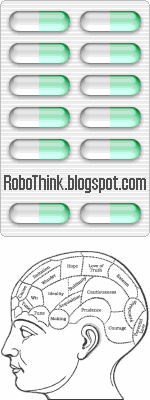Genetic Bias
 What I've noticed again and again and again, is that when articles about behavioral and psychiatric 'disorders' state that these conditions have been shown to have a genetic basis the writers fail to provide references to published research which has been successfully replicated. Why not? Isn't that a fundamental requirement of scientific evidence? -- that research findings can be replicated consistently many times over. Without such evidence these claims don't qualify as 'hard science'.
What I've noticed again and again and again, is that when articles about behavioral and psychiatric 'disorders' state that these conditions have been shown to have a genetic basis the writers fail to provide references to published research which has been successfully replicated. Why not? Isn't that a fundamental requirement of scientific evidence? -- that research findings can be replicated consistently many times over. Without such evidence these claims don't qualify as 'hard science'.As any regular reader of Scientific American magazine would probably know, geneticists have found that there are complex interactions between different genes on a single DNA strand, between DNA and RNA, and between genes and trigger events in the environment. Nevertheless, plenty of researchers in the field of bio-psychiatry cling to the simplistic notion that they will be able to find unique genes that will explain the existence of vaguely defined psychiatric or behavioral problems. After several decades of such research none have been found that can be relied upon to show up in replication studies by fellow scientists. It's as if they are hoping to find elusive hard bits inside marshmallows.
Take the fuzzy concept of 'schizophrenia' as an example. It's a well established fact that schizophrenia is diagnosed much more often among the urban poor than any other socio-economic group. And yet its incidence is significantly less in blood relatives who live in impoverished rural areas. In 1998, the journal 'Nature' published yet another paper suggesting a possible genetic link to schizophrenia. Once again, as reported in the journal 'Science', follow-up studies failed to find any confirmation.
Some may say "But what about a physical illness like diabetes? Isn't there plently of evidence that a genetic predisposition is responsible?" Actually, no. In 2001, the International Journal of Epidemiology published a research report on diabetes and high blood pressure in African-origin populations: Sick genes, sick individuals or sick populations with chronic disease? A group of medical researchers from the United Kingdom, France, Cameroon and Jamaica investigated the evidence for and against genetic 'causes' of type 2 diabetes. Here are three quotes from their commentary on the research data:
(1) "Our conclusion is that environmental factors play an overwhelming role in these genetically similar populations, even if that similarity is not yet formally measured."
(2) "We thus favour a hypothesis for the emergence of type 2 diabetes of acute-on-chronic energy imbalance, which has the profound implication of being reversible without 'labelling' currently afflicted societies as 'genetically susceptible', a potentially dangerous form of investigator bias."
(3) "To date, if at all, candidate genes have been weakly and imprecisely related to chronic disease phenotype when they occur. This is despite many millions of dollars spent in research funding and years of searching, which might also suggest publication bias."
- Related blog articles:
Autism Epidemic
Empathy Deficit Among Scientists - Outside link:
An 1871 review of Charles Darwin's Descent of Man
